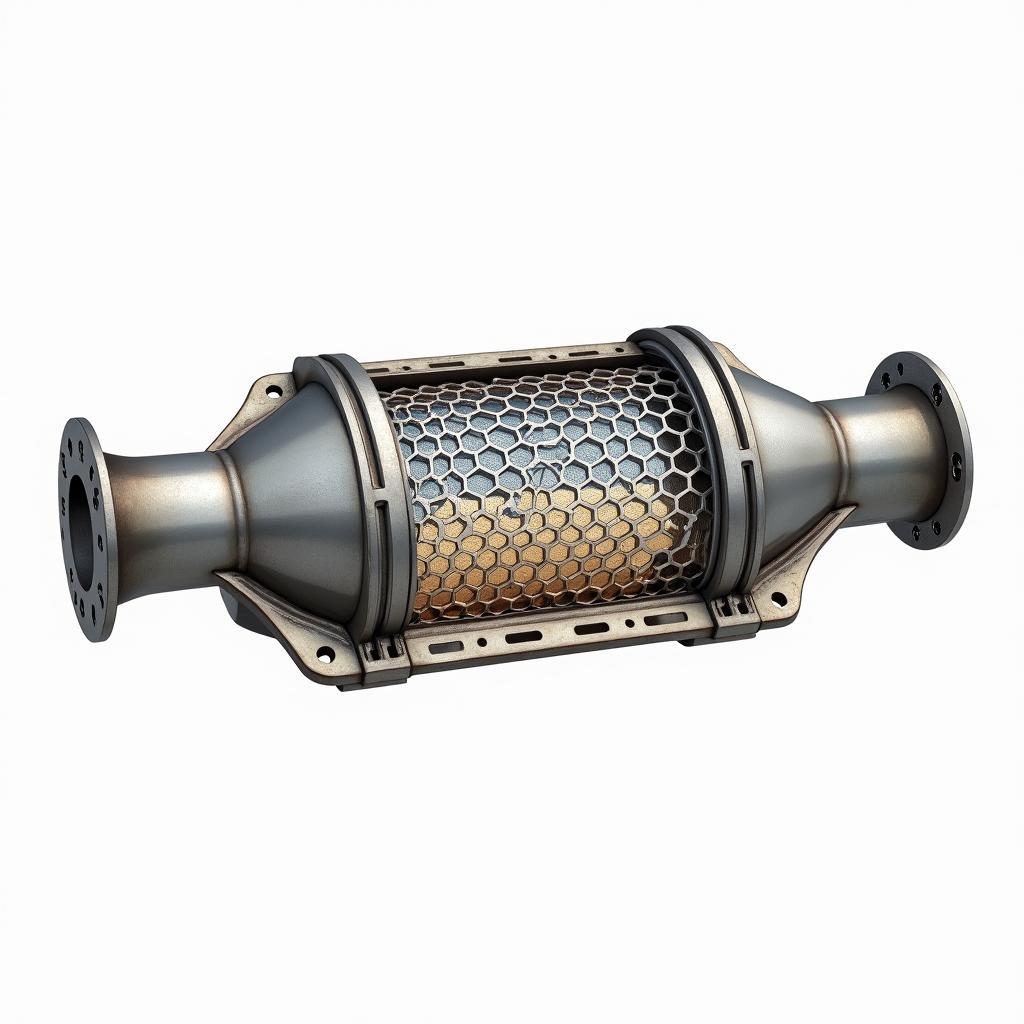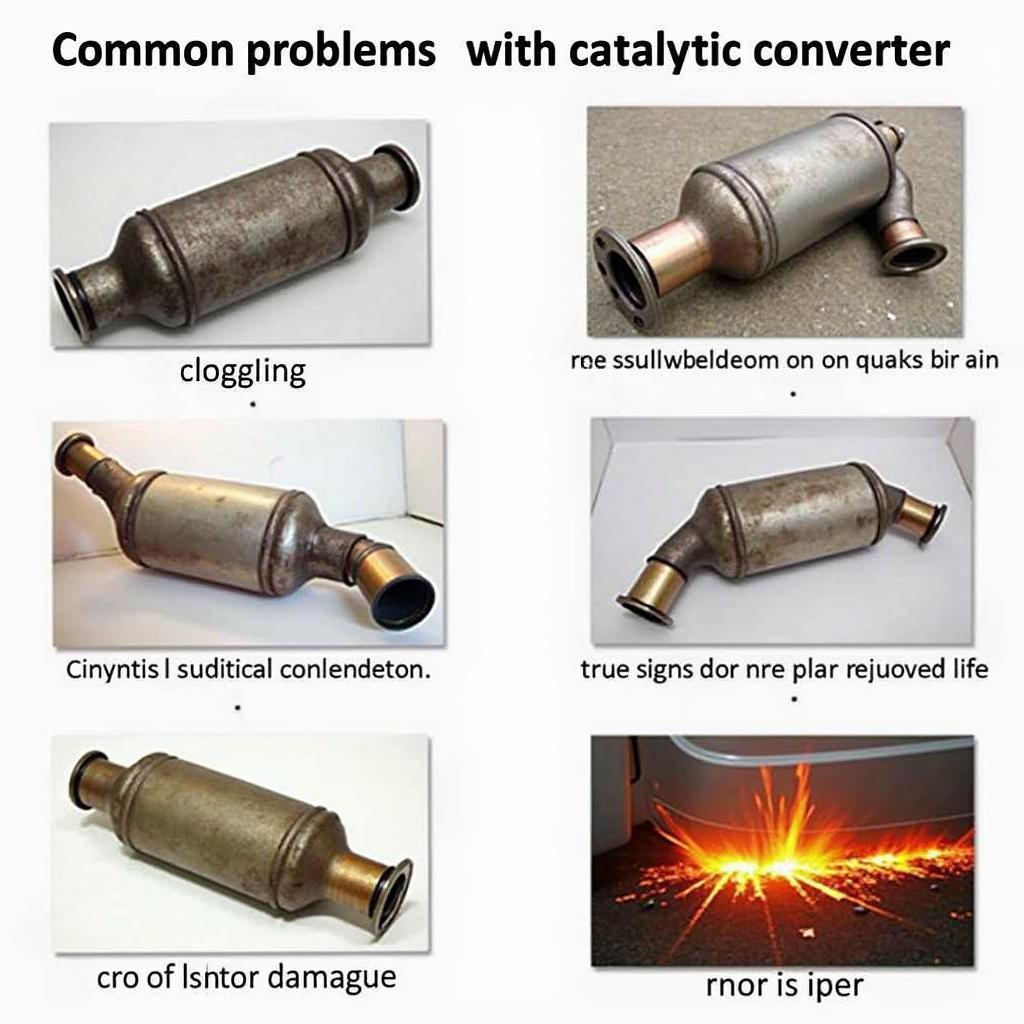Metal catalytic converters are an essential component of modern vehicles. They play a crucial role in reducing harmful pollutant emissions, thus significantly contributing to environmental protection. In this article, you will learn everything you need to know about metal catalytic converters, from how they work to potential problems and solutions.
What is a Metal Catalytic Converter?
A metal catalytic converter, also known simply as a catalytic converter or “cat,” is a component in a vehicle’s exhaust system. Its purpose is to convert harmful exhaust gases into less harmful substances before they are released into the environment. The process is based on chemical reactions accelerated by the catalytically active metals within the converter, typically platinum, palladium, and rhodium. These metals are applied to a honeycomb structure to increase the surface area and enhance the conversion efficiency.
The metal catalytic converter primarily reduces emissions of carbon monoxide (CO), unburned hydrocarbons (HC), and nitrogen oxides (NOx).
 Diagram showing the structure of a metal catalytic converter
Diagram showing the structure of a metal catalytic converter
Dr. Klaus Müller, a renowned expert in exhaust technology, emphasizes in his book “The Chemistry of Exhaust Purification”: “The metal catalytic converter is one of the most important inventions in automotive environmental protection. Without it, pollutant emissions from our vehicles would be many times higher.”
How Metal Catalytic Converters Work and Their Importance
The function of the metal catalytic converter is based on the catalytic oxidation and reduction of pollutants in the exhaust gas. Carbon monoxide (CO) is oxidized into carbon dioxide (CO2), unburned hydrocarbons (HC) are burned into carbon dioxide (CO2) and water (H2O), and nitrogen oxides (NOx) are reduced into nitrogen (N2) and oxygen (O2). These reactions occur at high temperatures generated by the engine’s combustion.
The importance of the metal catalytic converter for environmental protection is immense. By reducing pollutant emissions, it contributes to improving air quality and decreasing health risks from exhaust fumes. A functioning metal catalytic converter is therefore essential for every modern vehicle.
Problems and Solutions for Metal Catalytic Converters
A common defect in metal catalytic converters is clogging due to residues from the combustion process. This can lead to performance loss and increased fuel consumption. Damage to the honeycomb structure from mechanical impact or overheating can also impair the converter’s function. In such cases, replacing the catalytic converter is usually necessary.
Sometimes, the converter can also be damaged by faulty spark plugs or a defective oxygen sensor (Lambdasonde). Therefore, it is important to regularly inspect these components and replace them if necessary.
 Illustration showing common issues with a metal catalytic converter
Illustration showing common issues with a metal catalytic converter
Metal Catalytic Converter: Questions and Answers
- What does a new metal catalytic converter cost? The cost for a new metal catalytic converter varies depending on the vehicle model and manufacturer. Contacting your workshop or an auto parts dealer will give you precise information.
- How long does a metal catalytic converter last? The lifespan of a metal catalytic converter is generally between 100,000 and 150,000 kilometers.
- How do I recognize a faulty metal catalytic converter? Signs of a faulty converter can include performance loss, increased fuel consumption, unusual noises from the exhaust system, or an illuminated check engine light.
Further Information and Help
Do you need more support regarding metal catalytic converters or other car repair questions? Visit our website autorepairaid.com for more information, guides, and helpful tips. Our experts are happy to assist you with all your questions. Contact us now! We are here for you 24/7!
Metal Catalytic Converter – Your Contribution to Environmental Protection
In summary, the metal catalytic converter is an essential component for reducing pollutant emissions in road traffic. Through its function, it significantly contributes to environmental protection and improving air quality. Pay attention to your vehicle’s signals and have the catalytic converter checked promptly and replaced if necessary when problems arise. This way, you contribute to a cleaner environment.
Do you have questions or suggestions about metal catalytic converters? Feel free to leave us a comment! Share this article with other drivers to raise awareness about the importance of the catalytic converter. Visit our website autorepairaid.com for more helpful information about car repair.

